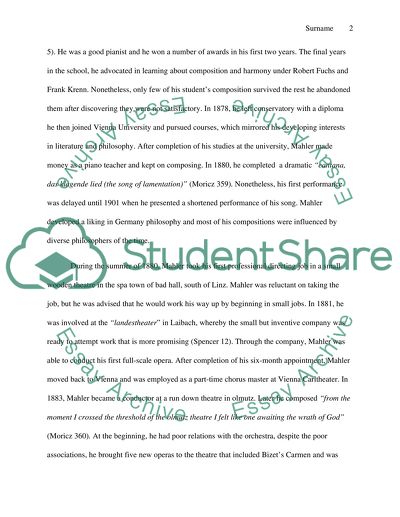Cite this document
(“Gustave Mahler Essay Example | Topics and Well Written Essays - 1250 words”, n.d.)
Retrieved from https://studentshare.org/music/1459583-gustave-mahler
Retrieved from https://studentshare.org/music/1459583-gustave-mahler
(Gustave Mahler Essay Example | Topics and Well Written Essays - 1250 Words)
https://studentshare.org/music/1459583-gustave-mahler.
https://studentshare.org/music/1459583-gustave-mahler.
“Gustave Mahler Essay Example | Topics and Well Written Essays - 1250 Words”, n.d. https://studentshare.org/music/1459583-gustave-mahler.


